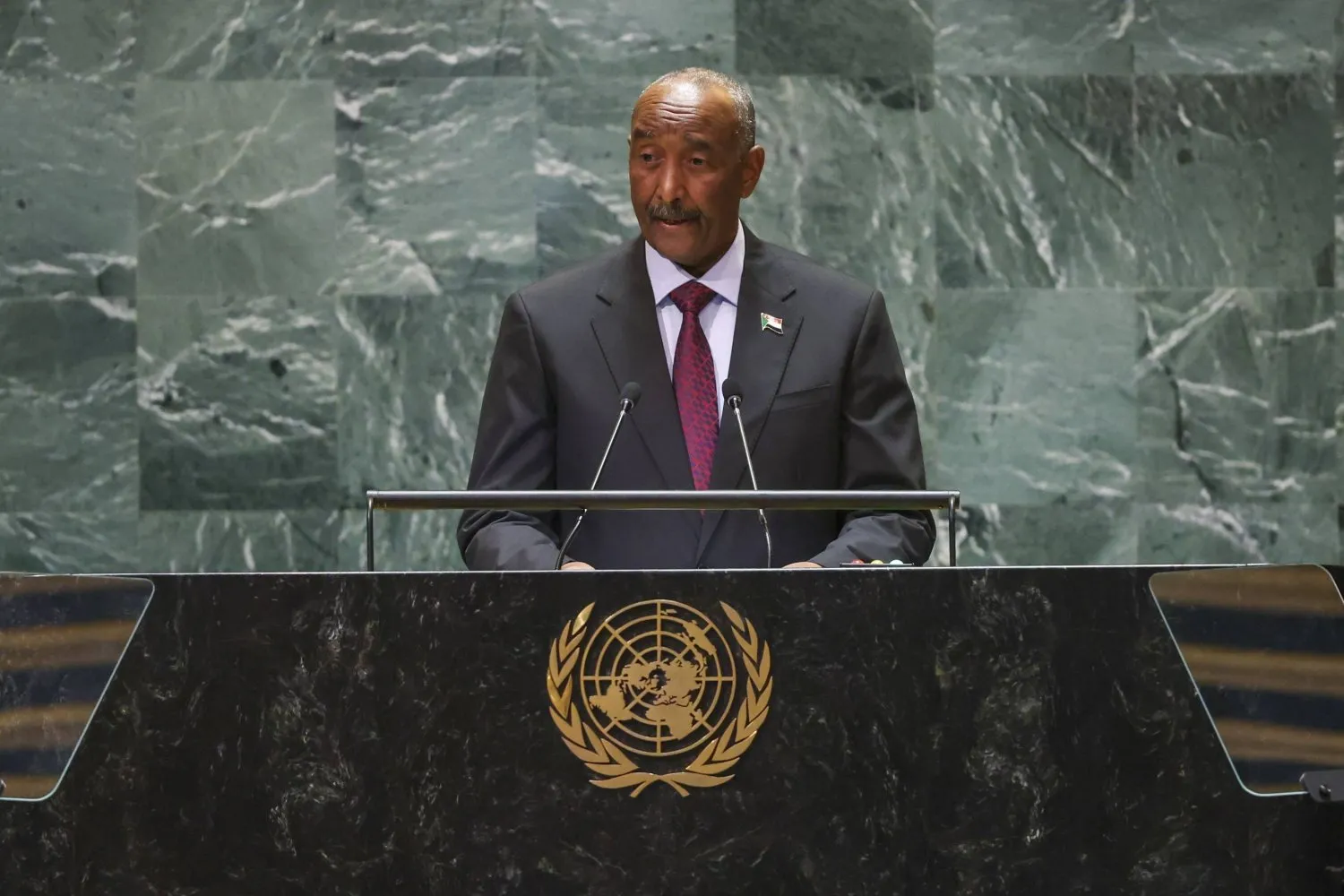Sudanese Armed Forces Chief and Sovereign Council Chairman General Abdel Fattah al-Burhan has accused the Rapid Support Forces (RSF), led by Mohamed Hamdan Dagalo (Hemedti), of betrayal for rejecting agreements reached during the Jeddah talks, which were brokered by Saudi Arabia and the United States.
Burhan emphasized that he is not setting preconditions but is calling for the implementation of previous agreements between the two sides.
His remarks on Friday came amid intense diplomatic moves during the 79th UN General Assembly in New York. Saudi Arabia announced that its aid to Sudan had exceeded $3 billion, while the United States urged for humanitarian ceasefires, especially in the Darfur region.
At a press conference following his participation in the UN meetings, Burhan said that Sudan is facing a conspiracy involving internal political forces and some regional and international powers, aiming to change the government through armed force.
When asked by Asharq Al-Awsat whether he would negotiate with Hemedti without preconditions based on the Jeddah Agreement, Burhan reiterated that what he seeks is the execution of what was already agreed upon in Jeddah.
He stressed that the parties and mediators had agreed on specific military and security measures, including leadership and budget details. Burhan insisted that until these agreements are implemented, there will be no further negotiations with those who "betray their promises."
The head of the sovereign country dismissed international accusations that both he and Hemedti are putting personal interests above the nation’s well-being. He asserted that the conflict is not a battle between two generals but a war against the Sudanese people and state.
Sudan was a focal point during the UN meetings, with a ministerial session titled, "The Cost of Inaction: Urgent and Collective Support to Scale Up the Humanitarian Response in Sudan and the Region."
The session, led by Saudi Arabia, the US, Egypt, the African Union, and the EU, called for an end to the war and expanded humanitarian efforts in Sudan and neighboring regions.
Joyce Msuya, acting coordinator for UN emergency relief, emphasized the need for a coordinated diplomatic push to improve humanitarian access and streamline the delivery of aid across borders and conflict lines. She urged member states to support increasing aid through Chad’s Adré crossing and extending its operation beyond the initial three-month period. In light of funding shortages, the UN Central Emergency Response Fund allocated $25 million to address famine and acute food insecurity in Sudan.
For her part, US Ambassador to the UN Linda Thomas-Greenfield called for humanitarian pauses in the fighting, particularly in El-Fasher and Khartoum, to allow aid delivery and civilian evacuation.
Dr. Abdullah Al-Rabeeah, Supervisor General of the King Salman Humanitarian Aid and Relief Center (KSRELIEF), revealed that Saudi Arabia’s aid to Sudan has surpassed $3 billion. He highlighted that the center had intensified its efforts after the outbreak of the conflict, implementing more than 70 humanitarian projects worth over $73 million in collaboration with UN agencies and other organizations.
Al-Rabeeah further stressed that the challenges posed by Sudan's crisis require collective efforts to provide unrestricted humanitarian assistance and sustainable, coordinated responses to ensure safe access to affected areas.









